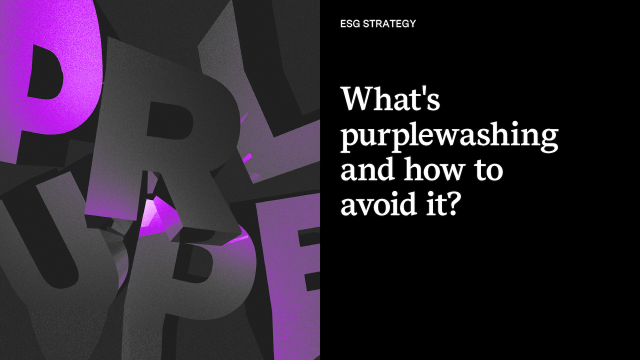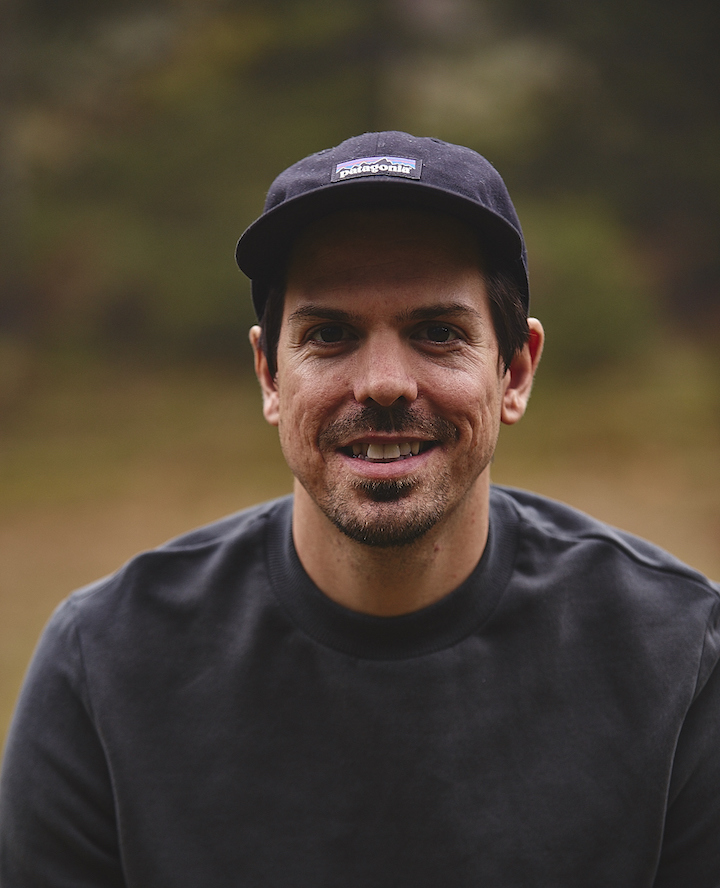
Purplewashing: what is it and how to avoid it?

Republik commits to working exclusively with purpose-driven clients by 2021, an evolution aligned with its promise to creating social capital.
We have always wanted to look beyond profitability by maximizing the social and environmental impact of our business. That's why we achieved the B-Corp certification in 2015, which led us to rethink our internal processes. Since that time, we have been inspired by a number of viable and innovative business models, including those from the B-Corp movement, from which we have learned evolved from.
With the potential impact of our internal actions being limited, we made the following observation:
The observation: To maximize our impact, the services we provide on a daily basis, need to have an impact.
The solution: To collaborate with companies that, by their purpose also want to have a positive impact on the community.
This solution comes with an obvious opportunity cost. Making a bold purposeful stand should not financially limit our growth. To maximize our impact, we need to be able to build relationships with companies that share our values and want to move in the same direction as us.
The quest for uniqueness in business is an ongoing issue for many companies and brands that operate in increasingly competitive markets and focus their marketing efforts on differentiation strategies.
We believe today that we must go further. Every brand is now public property. Companies must be truly motivated by the social and environmental impact they want to have through their business practices, something that is rooted beyond what is conveyed by a marketing campaign or a brand’s online platform.
To challenge today's consumers, businesses need to be motivated to create value, not just for themselves, but for the entire communities surrounding them; they need to create social capital.
Nowadays, every citizen has the power to express their beliefs and values on a daily basis through their purchasing power.
We believe that the product itself and the purchasing experience are decisional factors destined to diminish in importance in the purchasing process, benefitting the values companies producing them actually stand for.
The society in which we live requires these economic entities to consider the social and environmental issues that underlie their activities and place them at the heart of their business model. We are witnesses of this type of behaviour, every day. Especially on social media where good and bad corporative moves are constantly shared.
The increase of responsible consumerism in Canada is not just a trend. Consumers are moving towards a new perception of companies that there is little attraction for an exclusively profit-based business model.
The problem is that, on the one hand, savvy consumers often have to ask themselves and research a lot if they want to make the right informed decisions. On the other, brands are slow to invest in their communication and marketing budgets on the stories and information that really matter to the consumer.
Relying on a purpose that takes into account social and environmental impacts, therefore, becomes a necessity to challenge and engage today's consumers in a sustainable relationship.
There is a definite advantage in focusing one’s communications on its why. This is what defines a company in absolute terms. It is the foundation and the expression of a company’s utility.
If is well integrated and deployed, a company’s purpose is a sustainable thread, impervious to its competitors' initiatives to copy or imitated.
Yet, it is not uncommon for employees to not even be able to identify the purpose of the company they work for. This is an alarming fact since it is a powerful and free engine of commitment.
For employees, it's a valuable tool in decision-making. They can refer to it in order to guide their everyday actions. A clearly defined and internally communicated purpose is an asset for companies that want to decentralize and engage their employees, allowing common references and consistent decisions within the group.
In today’s context of full employment, maintaining its power to attract quality employees is difficult yet crucial. Creating social capital rallies employees who identify with it and believe their jobs are more than monetary compensation, but a way to have a concrete impact on what they find important. It mobilizes and creates loyalty, and this is especially true for the new generation of workers for whom work must satisfy a quest for greater meaning.
To succeed in integrating and deploying one's purpose one must obviously be authentic. The public will not be fooled, and any trickery will lose credibility even for the most conscientious companies.
It must also be kept in mind that a reason for focusing on creating social capital, is not necessarily a humanitarian mission - saving the planet is obviously not at the heart of all companies.
The important thing is to identify honest and genuine motivation and to make business decisions with great attention.
Business models will always change, but a model that has a social and/or environmental impact within its core will continue to perform as long as there is progress to be made for the common good.
We believe that this is a sustainable model, and we will work with the companies that drive us to showcase their commitment over time and create social capital for the community.